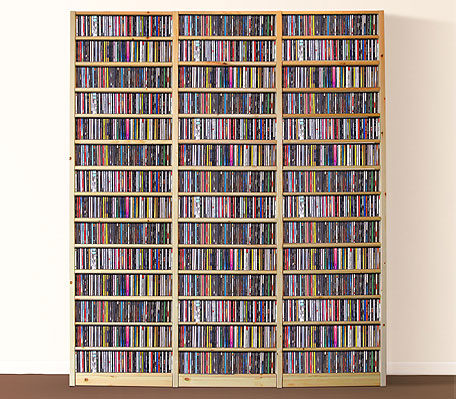I read the news today, oh boy. More holes in Blackburn,
Lancashire.
More holes than the finance available to fill them.
More disasters, more horror.
No money, no jobs.
No hope?
The world is not a pleasant place right now. Not for me,
probably not for you either.
And yet I refuse to give up.
Persistent little idealist that I am.
I have to believe that something good is going to happen
soon and people around the world will realise the error of their combined ways
and do something about injustice once and for all.
As I said, I’m a dreamer.
I cannot live without hope of improvement and a vision of
a world where people finally realise that they need to respect one another, be
honest with one another and stop all the unnecessary fighting, both globally
and within our own little insignificant lives.
People say that they feel edgy; standing on the edge of a
precipice. There’s excitement, anticipation and trepidation, intermingling
together, concerned yet intrigued about the unknown. The trouble is one doesn’t
know which direction the fall is going to go; down into the depths of despair
or walking on a solid pathway further up the mountain to see the real
wonderment of the world – the ultimate truth.
Every day, people live with this, though some still
cannot see that they are on a pathway.
Every day people wake in the world and walk or talk or
sit or stand and live their lives oblivious or engrossed in the world around
them.
Every day, people live and we know nothing of their
lives. We cannot even envisage what it must be like to be in another person’s
mind.
We are all such individuals and yet we are simultaneously
connected by an invisible thread that binds us together, only we choose too
often to dislocate this, keeping ourselves to ourselves, unable to see that the
thread needs strengthening and uniting if we are going to make the changes to
the world that ought to happen.
Loving kindness is what is needed in this world. Compassionate
economics, thoughtful politics, concern for oneself and others that are so
significant in one’s lives, empathy for those we don’t even know.
And still we disregard at the ultimate expense of ourselves
and our wellbeing.
It’s strange one this. The ego is vital and essential. If
one is to live life to the full one has to look after oneself. There is some
merit in thinking about yourself before all others. You are the only person who
knows what you want, what you need and compromise can take so much of yourself.
Yet, the most selfish of people are missing the absolute
benefit of giving.
Those people who followed the Thatcher vision of containment,
thinking about their needs above all others, are so naive. If only they could
lift their heads and see that if they truly value themselves above all, if they
really want a truly contented life then they can only achieve this through the
relationship and interconnection with others – known and unknown; through
giving, through caring, through lovingkindness.
But of course, this is just my opinion.
I think about the most selfish moments in my life, and
what have they actually given me? Yes, moments of brilliance in being free to
do exactly what I want but ultimately, do they really provide the complete
state of serenity that I want and need? Does selfishness really give me the
same feeling of wholeness that I have when I am doing something for others?
I like giving. I selfishly like the feeling I have when a
recipient values the things that I have done.
So perhaps I am no better than those whose aim is me, me,
me.
In giving, I find me. I find myself.
Can we really live in a vacuum, oblivious to the lives
and needs of others? Can we shut ourselves away and shield ourselves from the
suffering of others? Can we switch the television off as soon as we see
suffering and bloodshed? Can we ignore the plight of the many for the whims of
the few?
Can we keep still and tunnel our minds without ever
looking out and seeing the darkness in our world?
Can we keep still and tunnel our minds without ever
looking out and seeing the lightness in our world either?
There’s a crack in everything – that’s where the light
gets in.
If we are ever going to move on in life, we need to look
and consider and empathise and wonder, and we simply do not do enough of this.
We walk away from the lives of others. We do not want to
be witnessing things that we cannot cope with nor do anything about, and yet
they are still happening.
Things unspoken don’t disappear. Feelings unmet do not
vanish. Hurt remains.
And all we can do is turn away in the hope that they will
diminish with time or a lottery win will take the pain away. We will give time
and money and consideration as soon as we have more for ourselves. But do we
actually do this when we do find ourselves with surplus to our need?
Last night, I watched a remarkable film about people
throughout the world on a set day in 2010.
“Life in a Day” was an amalgamation of YouTube clips that
had been carefully selected by an editing committee from the thousands sent in
from around the world.
They film looked at what was happening in peoples’ lives
on a typical day in a year, in a lifetime, in our world.
The director Kevin Macdonald says that the film focuses on
a single day because “a day is the temporal building block of human life –
wherever you are”.
Us humans like sets. We like patterns and order. It makes
us feel comfortable. Night follows day and so the pattern goes on, and whilst
we live in this ordered chronology we are comforted by its sameness. So perhaps
we don’t attempt to widen our sphere and look towards the lives of others.
We contain. We keep in our box. We live in our
self-designed box after all.
But sometimes, we allow ourselves a glimpse at the outside
world, to places that we are never likely to venture, into the lives of people
that we are never likely to meet.
This film allows us to be voyeurs because that is what we
are. We may think we want to be alone and isolated with just a few people
around us as part of our lives but we are communicative animals by instinct. We
want to see. We want to look and we want to think about what we have seen.
We want to touch and be touched by the lives of others.
If only we can be bothered to look, we can learn so much
and gain some insight into the whole spectre of human potential.
The film looked at birth, at death, at suffering, at
honesty, at amazement, at friends playing together, at peoples’ hopes. It said
nothing and said everything. There was the unusual and the normal. There were
lives lead with huge tragedies and complete chaos. There were lives lead where
there were seemingly no real worries. There were people absorbing the wonderment
of the world and there were others steeped in religious doctrines and rituals,
unable to break free.
There were children learning and adults instructing.
There was joy in the simplest of creations and bewilderment at the magnitude of
the immense.
There, in this film, was life and yet.........
......... I wonder.
I wonder how many people watched this film and felt.
I wonder how many people watched this film and thought.
I wonder how many people watched this film and imagined.
Because in order to live fully, these three things are
what we should be doing, and we should be mindful of when we are doing them and
what affect it has upon us and upon others.
How many people felt a spirituality in watching? How many
people could even begin to explain what this feeling was? Did it need
explaining?
How many people live their daily lives with spiritual
intelligence in mind?
How many people watched this film and thought that there
is a glimmer of hope in this hopeless world of ours? There may be no money to
fill those holes in Blackburn but is that really the most important thing in
our lives?
I watched and was fascinated. I’m probably a bit of an anthropologist
at heart. I am certainly a voyeur by choice. I like people and humankind, even
if many of them are fuckwits.
Yes, I did feel a spiritual wellbeing in looking at the
lives of others. I felt uplifted and enlightened.
Some of it was a little tedious and there were times when
I wanted to turn away but in the main, it was a good film to consider and think
and imagine and feel.
So what was I doing on 24th July 2010? What
would I have been able to contribute had I had my wits about me? Was I
thinking, feeling, imagining on that day? Was I using my head and hand and
hearts?
I woke early. I drove to the beach; a strange place at
the end of a dilapidated council estate.
The sun was urging its way through the clouds. I stepped
onto the sand and looked at the strange vista in front of me; open sea brushing
its way towards me, a natural beauty smothered by industrial necessity. To my
right was a city emerging from the mellow hills, sitting alongside a harbour,
waiting to spring to life. To my left was a vast steelworks, billowing out
white clouds and transparent gases that may or may not have been invading my
lungs.
I was alone, despite the two beach cleaners operating
some large and monstrous yellow machine that was whipping up the collected flotsam
and jetsam.
I was alone and contented whilst missing loved ones.
I sat down in a cafe on another beach, eating breakfast
with my children.
I sat on a beach reflecting, writing, thinking,
wondering.
I sat in a chair emailing, loving, wishing.
Saturday 24th July 2010, I was happy. I was
loved. I was giving and I received so very much.
How many people in that film can say the same? And what
would they say now? Were they in the same place on Sunday 24th July
2011? Are they and I as loved? How had their lives been changed and shaped
during the succession from one day to the other? How was the wider world
coping? Was there any further progress towards that eradication of injustice
that I hold so passionately?
And what of 24th July 2012 and years after
that?
I read the news today, oh boy.
It’s not good.
Greece is in turmoil with indecision and that
ever-obvious procrastination of the depressed. There is worldwide symbolic
demonstration about the inequity of life. There is global monopoly to protect
the monied. There are selfish governments thinking only of themselves and their
retention of power.
There’s wars in abundance – to the point that they rarely
get mentioned these days. There is a bubble of angst bursting forth in Syria.
Have we forgotten this country because their leaders are not as well known as
the Gaddafi’s?
There’s a pathetic inability of our leaders to act
intelligently to make this world of ours a better place.
But there’s also hope. The people in that film live their
lives in all manner of impoverishment. As do so many of us.
But we still go on and we resolutely refuse to give up on
the idea that crack of light will eventually become a pool of utter brilliance
and the ultimate truth of human kindness will prevail.
As I said, I am a dreamer.



















